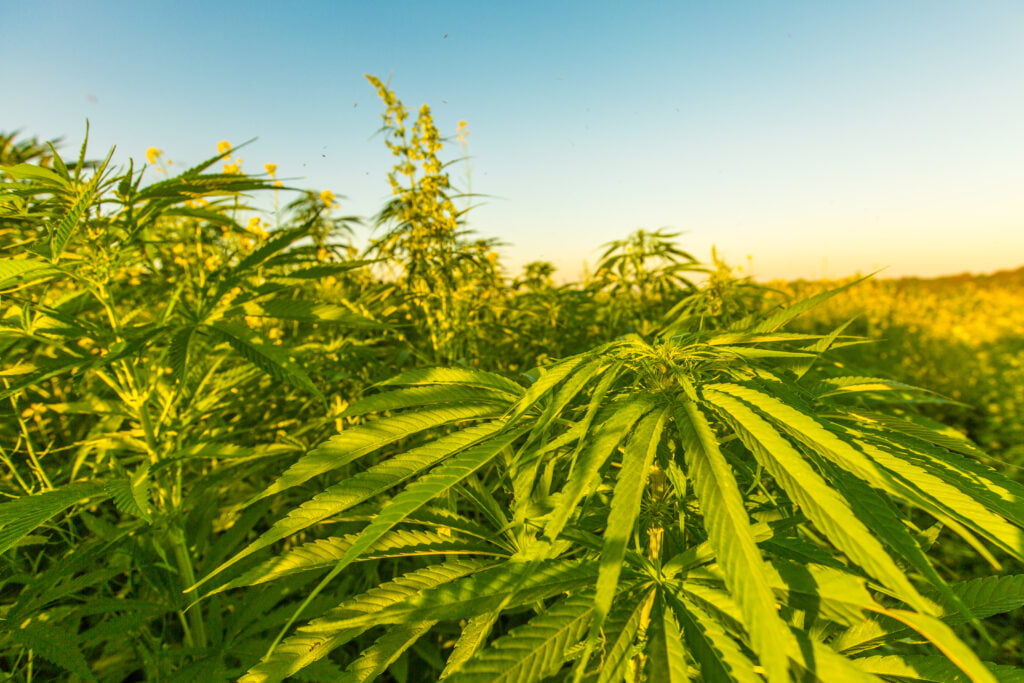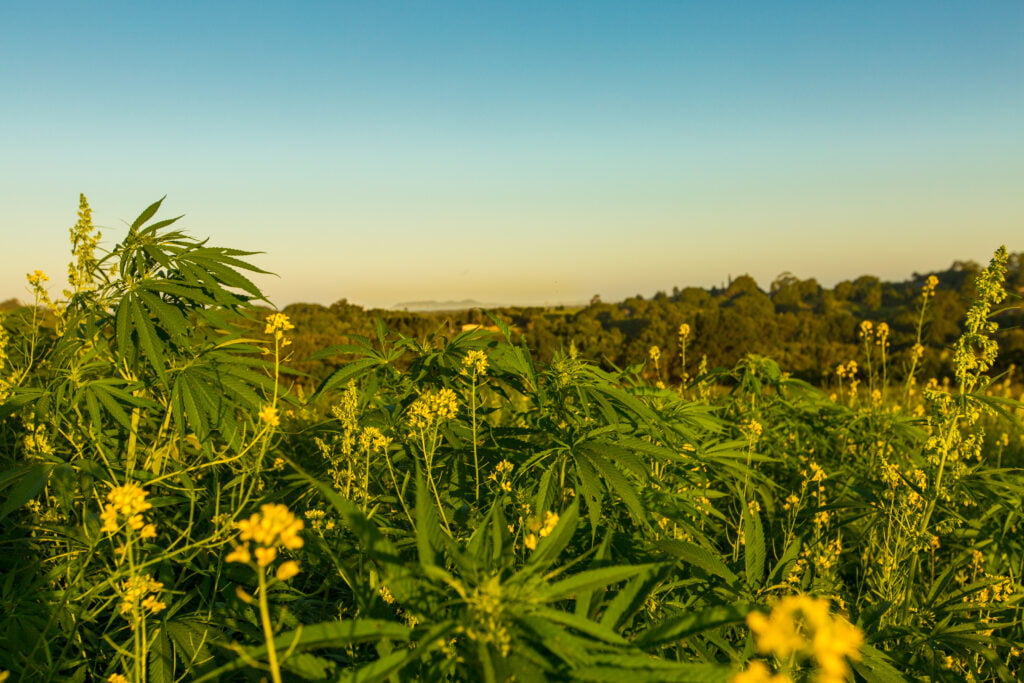How Sustainable Is Hemp?

Hemp has become the rockstar of the environmental movement.
But have you caught yourself wondering if it’s worthy of this spotlight? And how sustainable is hemp, really?
In a word: extremely. Few plants on the planet offer so much – from biofuel to soil regeneration to carbon sequestration – hemp is superior in almost every way. And with over 25,000 uses for the plant, hemp is not just a “nice-to-have” plant. It’s a vital weapon in our race against climate change. But that’s enough chatter, let’s look at the facts.
Top 7 Environmental Benefits of Hemp
1.Hemp can be used as a biofuel
In a world that’s dependent on diesel, petrol and other fuels, hemp offers a sustainable alternative. Hemp is an ideal biofuel (a fuel made from plant matter) which can drastically decrease the impact of fossil fuels. And while the naysayers claim that biofuel solutions aren’t viable due to the vast amount of land required, hemp has an answer. Hemp is fast-growing, requires little space and can even grow on poor quality soil. Which brings us to our next point…
2. Hemp is good for the soil
Unlike most agricultural plants that strip the soil of its vital nutrients, the hemp plant helps to regenerate the soil. The hemp roots reach deep down into the soil, helping to prevent erosion. Not only that, but this deep root system can also help clean the soil from heavy metals and toxins, as well as aerate the soil which helps encourage the microbes in the soil to expand. This helps the overall health of the soil for future crops.
3. Hemp sucks in CO2
Did you know that for every tonne of hemp produced, it removes a whopping 1.63 tonnes of carbon? This makes hemp an ideal carbon sink, with the ability to remove more carbon from the air than trees!
4. Hemp is fast-growing
Hemp doesn’t mess around. Hemp is a fast-growing, short rotation and annual herbaceous plant. By reaching maturity in as little as 4 months, hemp can contribute to sustainable agriculture around the world and slow down deforestation rates due to its impressive crop yield.
5. Hemp reduces the use of chemicals
Herbicides and pesticides have the potential to degrade soil, contaminate water and cause health issues. Thankfully, hemp is naturally resistant to many pests, so it requires very little (or zero) pesticides and herbicides to grow. But it’s important to note that research is still being undertaken on this, and Aussie farmers are still trialing organic hemp fields (watch this space).
6. Hemp reduces water use
Hemp uses a fraction of the water that’s required to produce crops like cotton, soy and almond. But it’s not to say that it doesn’t need water. Just less of it compared to its rivals.
7. Hemp is an eco-friendly building material
Hemp can be used to produce hempcrete (or hemp masonry) when combined with lime and water. It can be used to create insulation, prefabricated panels, finishing plaster and more. And it’s not just turning heads for its striking appearance – it’s also durable, pest-resistant, carbon negative, fire-resistant and an effective temperature regulator.

The Final Word: Is Hemp Sustainable?
Nowadays, it seems that every step we take is hurting the planet. But the humble hemp plant is a ray of hope amidst the environmental crisis. It provides sustainable alternatives for our everyday essentials, while also benefiting the soil, air and forests. Not only that, the hemp plant’s benefits for human health are equally as impressive (but that’s a story for another day).
Discover our range of hemp body care and pet products today.
Gorgeous, nasties free and effective products. Couldn’t recommend them more. I have fine, dry hair and both the conditioner and shampoo are perfect for my hair and easy to use.
- Katie G. -


